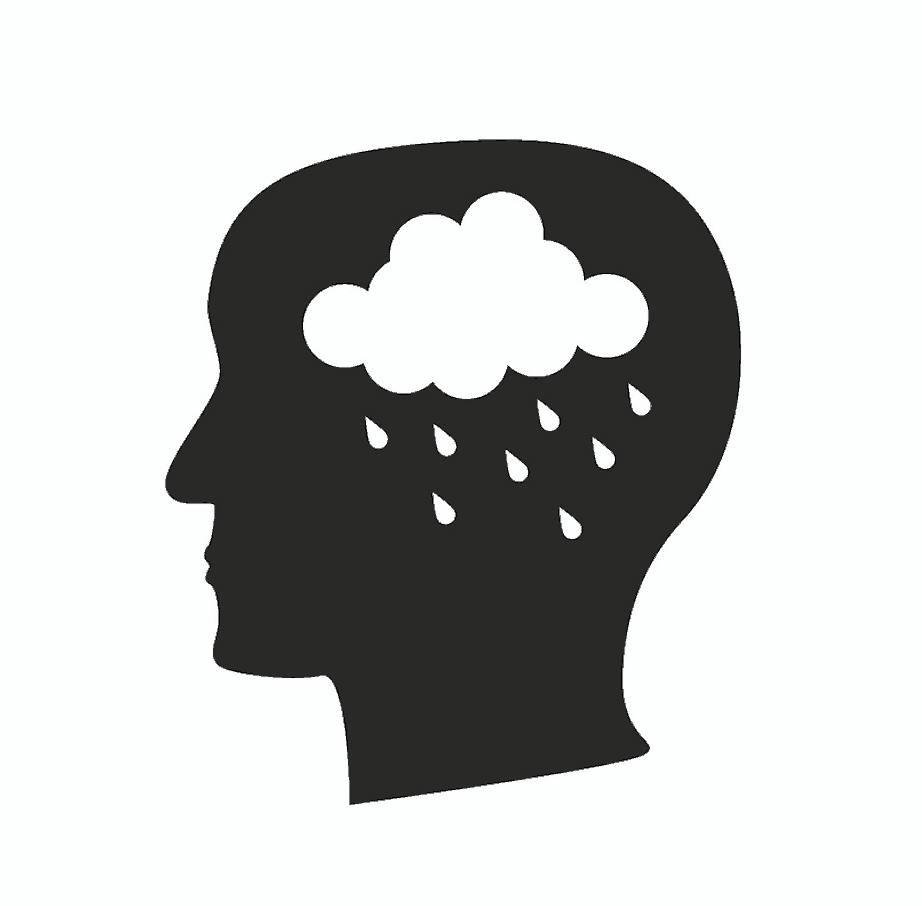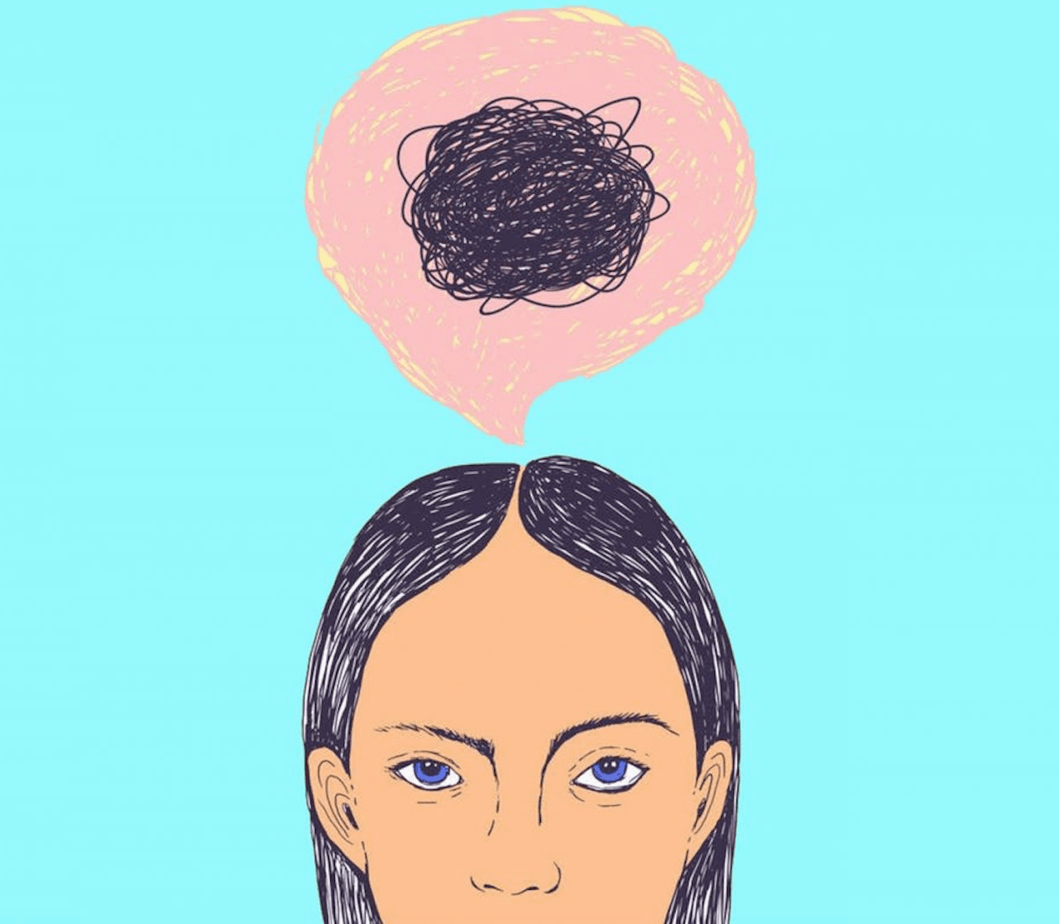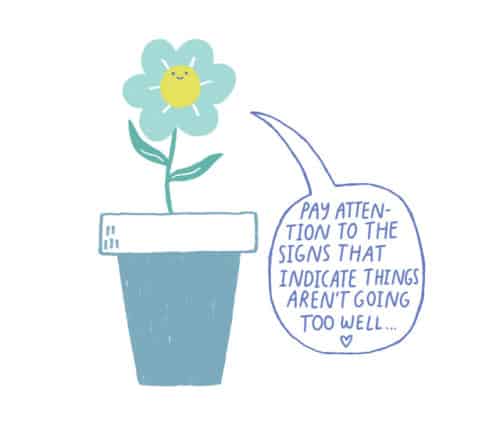Mental health is as important as physical health. According to some experts, around 50 million people are suffering from common mental disorders in Pakistan. It’s high time we start talking about mental health and removing the stigma attached to it. One should feel no shame in consulting a therapist or psychologist for depression, anxiety or other mental health problems. We sat with Sana Zehra, a clinical counsellor and therapist at Roohbaru — an NGO providing online help for mental illness — to help break this taboo. Here are all the things we learnt:

1. Depression And Anxiety Are Not Same
According to a study, 85% people with major depression are also diagnosed with generalised anxiety disorder and vice versa, but the two are different medical conditions. Sana says that depression is diagnosed when someone experiences five or more of these symptoms for at least two weeks: low mood, lack of interest in activities, increase or decrease in appetite, insomnia or hypersomnia, lack of energy, feelings of guilt or worthlessness, trouble concentrating and suicidal thoughts or behaviours. Whereas, experiencing the following symptoms on most days, for more than six months can be identified as anxiety: excessive worry, restlessness, being easily fatigued, trouble concentrating, irritability, sleep disturbance and muscle tension.
2. Family History Matters
Scientists are certain that around 40% people with depression have a family history of the mental illness. Having a parent, sibling or child who is suffering from depression may increase your chances of developing the illness; the Roobaru expert also seconds this. However, there are numerous non-genetic factors that can also cause depression.

3. Postnatal Depression Is Real
Giving birth can trigger a heap of mixed emotions among several women. They feel low, tearful, sad and anxious. But if these symptoms persist for a long period of time, it can indicate postnatal (also called postpartum) depression. In such cases, Sana suggests seeking help from a psychiatrist. They must also start exercising slowly, maintain their sleep schedule and eat healthy. Women who have suffered from the illness earlier in their lives may be at a 30-50% risk of developing postnatal depression.
4. Migraines And Depression Can Be Related
Doctors and researchers have long drawn a link between migraines and depression. Several studies have shown that the presence of one of these disorders increases the risk of a person suffering from the other. Migraines and depression may be related in several ways. They both may be caused by similar brain chemicals. Also, because migraines are responsible for severe pain and disability, the migraine attacks and reduced quality of life may lead to a depressed mood, while the mood changes may trigger migraines, as can many other conditions. According to Sana, people suffering from migraines are five times more likely to develop depression as compared to people who don’t.

5. How To Cope With An Anxiety Attack
Breathing exercises can help you cope with a stressful situation. Stress can trigger the body’s automatic systems, which will increase your heartbeat and breathing rate. The possibility of spiralling into an anxiety or panic attack can be lowered if one is consciously aware of their breathing and can regulate its depth and rate. Sana also reiterates that the best way to control an anxiety attack is to relax and practice deep breathing. Don’t let unnecessary thoughts take over your mind and exercise to keep yourself distracted. However, in severe cases, one must consult a therapist.
6. Social Media Is Not All Fun
We’ve heard this time and again, social media affects our mental health in many ways. It can easily destroy a person’s self-esteem. Scrolling through your timeline, you see photos of your friends enjoying their life, as well as celebrities and influencers looking like the picture of perfection. You may organically start comparing those photos with how your own life looks which can prompt feelings of inferiority. Sana says that social media can have a negative impact on a person’s mental health so one should try limiting the time they spend on social media.

7. CBT Can Work Wonders For OCD
Obsessive Compulsive Disorder (OCD) is a type of anxiety disorder that occurs when someone shows obsessive and compulsive behaviour. According to the Roohbaru expert, the disorder is curable but a person with OCD can enjoy significant relief from their symptoms. She recommends Cognitive Behavioural Therapy (CBT) which is a short-term psychotherapy treatment and uses a hands-on approach to problem-solving by changing behaviour and thinking patterns behind an individual’s difficulties (eventually changing the way they feel). She says the exposure and response therapy used in CBT works well for OCD patients. It alters brain activity the same way medications do.
8. Social Anxiety Isn’t Worth Sweating Over
If you are socially anxious, you feel nervous and uncomfortable in a gathering. The fear of talking to strangers, speaking in public, feelings of discomfort when you make eye contact, eating in front of someone are some signs of social anxiety. In order to fight this disorder, Sana recommends that before you head out, engage in deep breathing exercise, look at the situation realistically and see if it is worth sweating over. Think about the situation and see what scares you. You should face it, acknowledge it and write down your predictions to see how anxious you really are when you step out. Sometimes, you will find that you are not as anxious as you had anticipated yourself to be.

9. Cure Insomnia With Sleep Hygiene
Insomnia is a condition where one finds it difficult to sleep or maintain sleep. Despite the availability of pharmaceutical and non-pharmaceutical treatments, one must first work towards curbing the disorder through CBT. Additionally, certain sleep hygiene routines can also help you immensely. Sana emphasises on setting a sleep routine and sticking to it. You must avoid watching TV or using your phone at least an hour before going to sleep, as the blue light emanating from your phone screen suppresses the body’s production of melatonin – a hormone that regulates sleep and wakefulness. She also recommends avoiding caffeine and soft drinks, as well as exercise at least four hours before bedtime.
10. How To Play Your Part?
If someone you know is suffering from a mental illness, support them by asking them how you can help. Sana says it’s crucial to acknowledge their feelings and validate them. You can also help them seek counselling services such as Roohbaru or help them see a psychologist or therapist. There is absolutely no shame in this – and it is extremely important we remember that.









What do you think?
You must be logged in to post a comment.